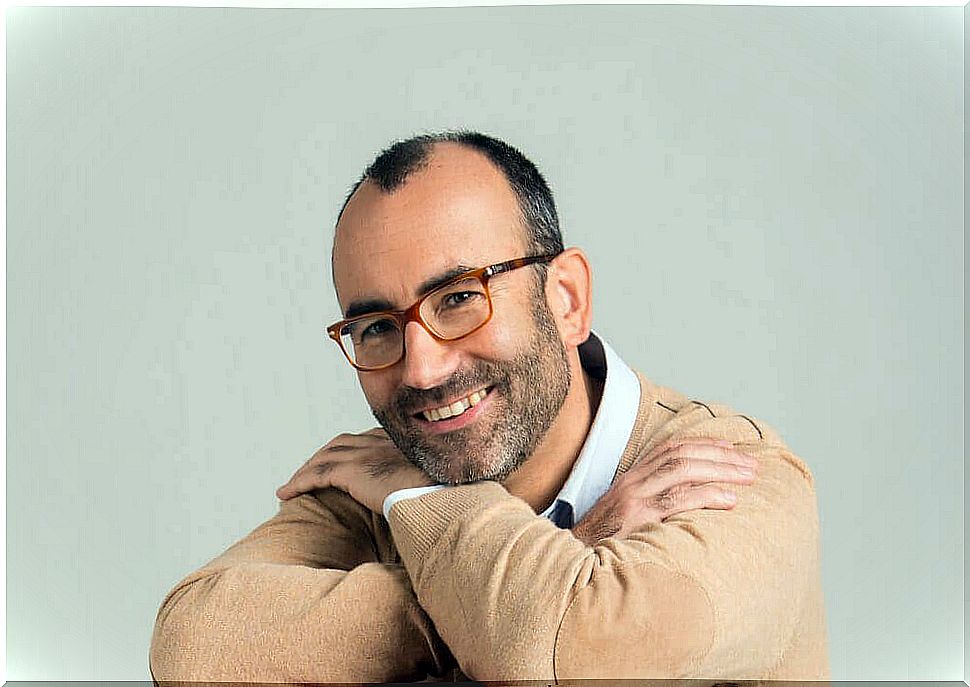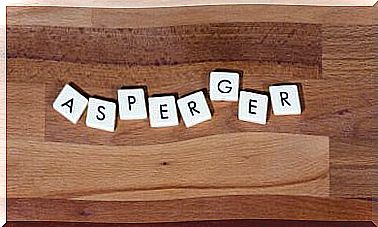Rafael Santandreu: Interview On Happiness

Any interview with Rafael Santandreu is an excellent opportunity for growth and discovery. With his latest book, not yet available in Italian, he offers us a practical manual for personal transformation and self-therapy. It is a complete and original work to acquire valid strategies based on cognitive psychology.
He is the author of books well known to the public, such as The art of not embittering one’s life or Felice if you want . Santandreu stands out for his ability to make us understand the origin of our vital dissatisfactions, our unhappiness and the way our thoughts shape reality.
Interview with Rafael Santandreu
In our interview with Rafael Santandreu we underline the importance of paying attention to the way we interpret what happens to us, even negative events.
As a psychologist, trainer, popularizer and therapist specializing in strategic brief therapy, Rafael Santandreu is a reference figure who invites us to question ourselves. Thanks to him, we have made terms such as terrible or necessity our own , ideas that force us to look within ourselves to understand how far we can limit our human potential.
Likewise, in his latest book Santandreu gives us interesting philosophical approaches to show us that the basis of happiness and positive psychology also feeds on our classics.
The approach proposed in your latest volume responds once again, as it has already accustomed us in the past, to an original and innovative lesson to allow us to grow. A revulsive to awaken our inner joy, a journey that always deserves to be taken by his side.
Is the cognitive psychology you pursue aimed at modifying the inner dialogue?
That’s right. Epictetus, a first-century philosopher, said “It is not the events, but our point of view regarding the events that is the determining factor. ” This means that we don’t get depressed because we were left by the partner, we get depressed because we repeat to ourselves “I’m alone! I will never be happy again! I absolutely need her / him! ”.
In reality, most adversity should have minimal impact on us, but as we activate a highly negative inner dialogue, they cause us anxiety and depression.

Do the strongest and happiest people have a particular inner dialogue?
It is so. They don’t dramatize what’s going on in their lives. That is, they know very well that adversity exists and they are a little bothered by it, but not to the point that they cannot be happy. They are convinced of it. However, it is true that there are great adversities such as having cancer or losing a family member.
Can we all learn to be like this?
I guarantee you that if you adopt the personal philosophy of people like Stephen Hawking, your emotional world will change: little adversities will not tangle you as much and you will have more mental space to enjoy life. It all resides in the inner dialogue, in one’s own convictions about life.
What beliefs define this new philosophy of life?
One of the fundamental principles is fighting the need, the belief that you need many things to feel good. The truth is, we only need water and food.
Everything else is secondary and superfluous: having a partner, having a job, for example, is not important for happiness. The only essential thing is not to complain and appreciate what you have.
What about health? We need it to be peaceful and feel good
Not at all! Health is the first thing we lose as we get older. Sticking to health is absurd. And I assure you that we can be happy even with a serious illness. You have the example of Stephen Hawking and many others. Again, what matters is what we say to ourselves: whether we dramatize or not.
Many people get depressed when a loved one dies… but I guarantee you that this depression is the product of their internal dialogue about death. I consider death positive and even beautiful. Because? Because all natural events are positive and necessary. My death and that of my loved ones is a good thing.
Do you think that cognitive psychology presents a “correct” thought in the face of any adversity?
Yes. My books, for example, are a collection of philosophical principles that will convince you that you can be happy in the presence of any adversity. You will find many arguments that, together, will lead you to say: “There is nothing that can make me unhappy!”.
In fact, Epictetus, the poet you mentioned, was a slave …
That’s right: he was born a slave! His parents were and he was sold at birth. His master, Epaphroditus, took him with him to Rome. Despite this, Epictetus was happy. He would repeat to himself: “As long as I can do wonderful things for myself and for others, I will be happy”.
Like Stephen Hawking. We can see that the secret of happiness lies in the inner dialogue. If we check our inner dialogue every day, we will learn to be happy.
Is it a daily workout?
Yes. Cognitive psychology will ask you to review what you say every day when adversity occurs.
For example, you are stuck in traffic… Don’t tell yourself: “This is disgusting! I should be able to flow well, as God commands! ”, But“ It doesn’t matter if there is confusion. I can do thousands of beautiful things to enjoy life right now, like sing a song, call my father and chat for a moment, etc “.

Is it necessary to correct the inner dialogue on all adversities, big and small?
Exactly. The next time you are stuck in traffic, you will be surprised as it will have less of an impact on you. And so with everything. Another example: if someone makes an unpleasant comment to you, work so that it doesn’t affect you: “I don’t need everyone to treat me well all the time; it doesn’t matter if someone insults me: it’s actually his problem, not mine “.
I’m simplifying because, in reality, we have to present many more arguments so that such episodes do not hurt us, but the dynamic is this.
How long does it take to change this general inner dialogue and start feeling much better?
There are noticeable changes already during the first month of hard work on correcting one’s inner dialogue. Within about three months, the person feels 80% better. Finally, to get to 100%, it takes more time, a year or two. But you have to work on it every day.
The result is that the person feels happy, no longer puzzles, or almost, dares to do many more things and appreciates the beauty of life much more.









